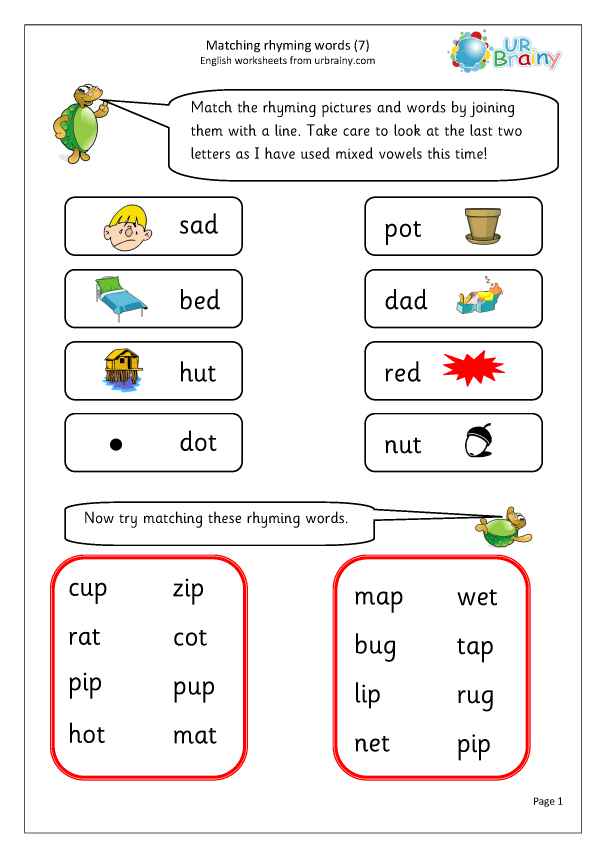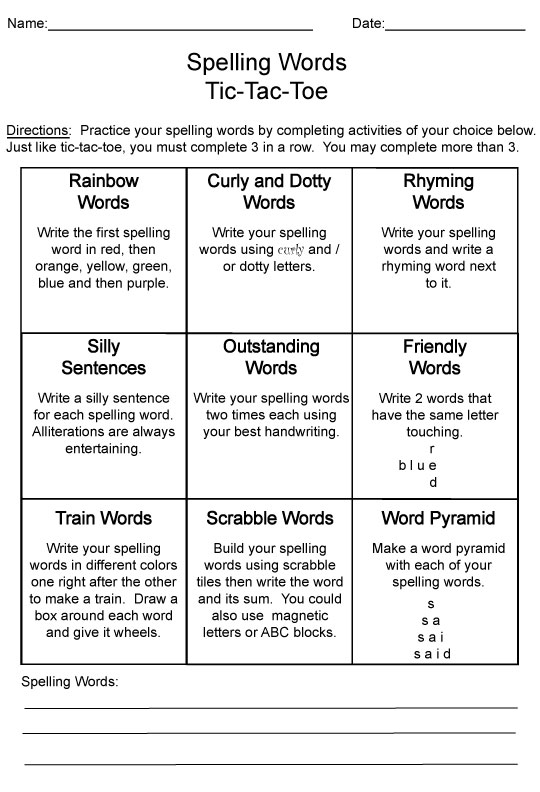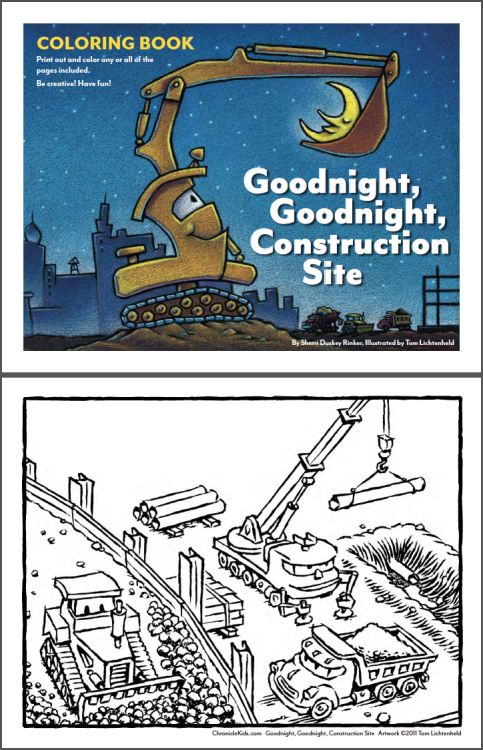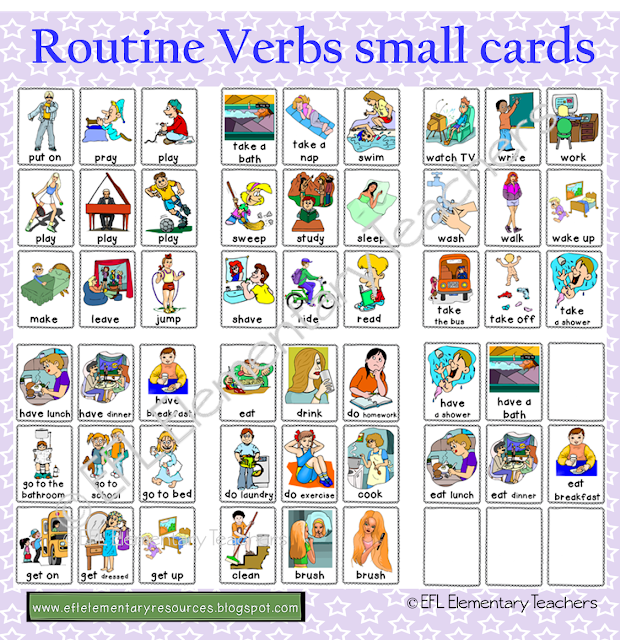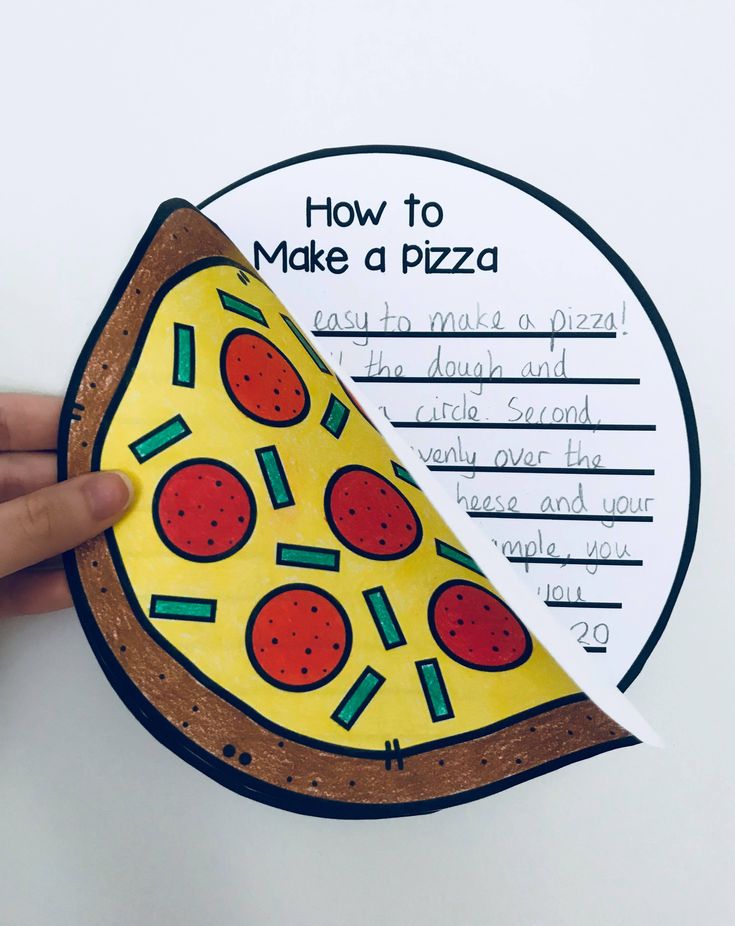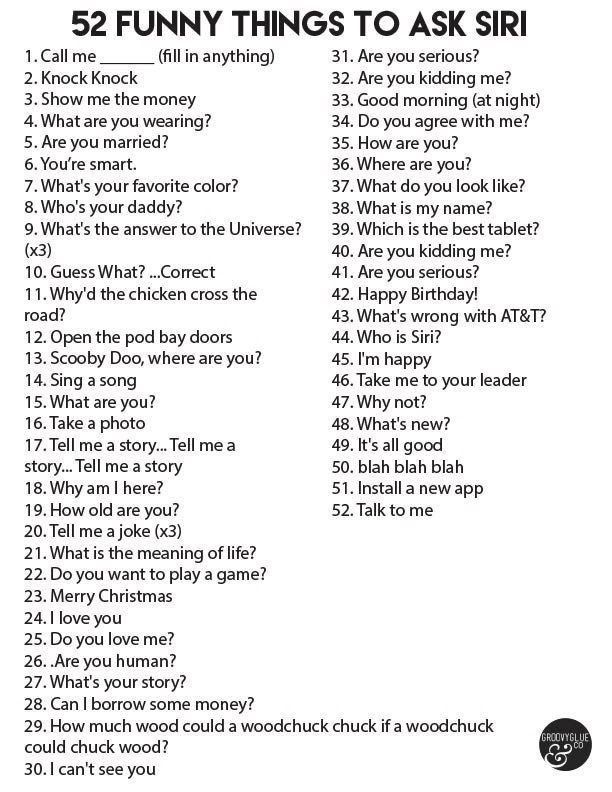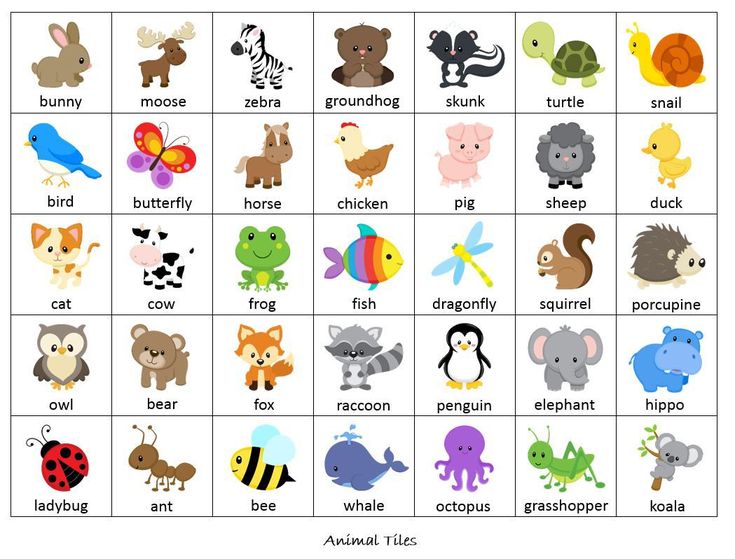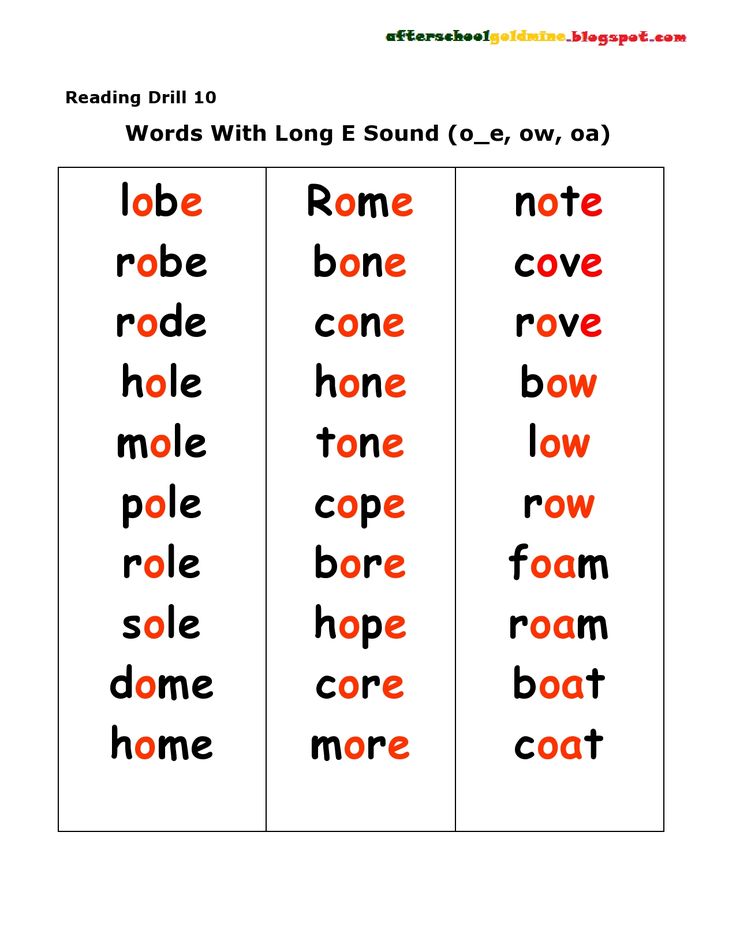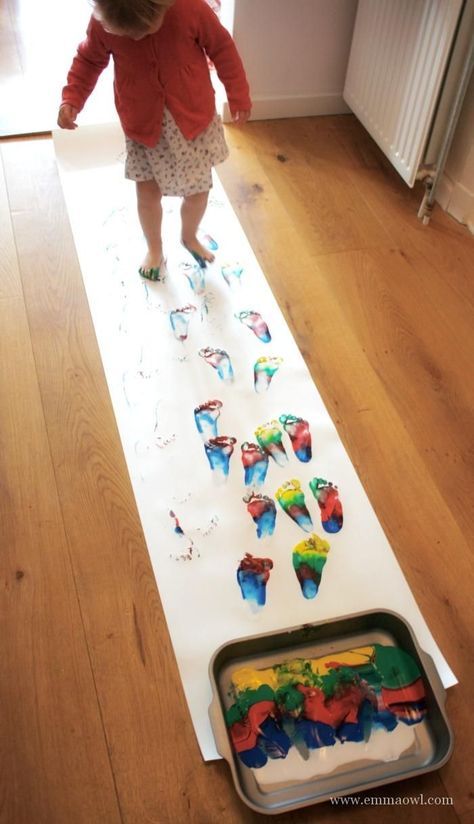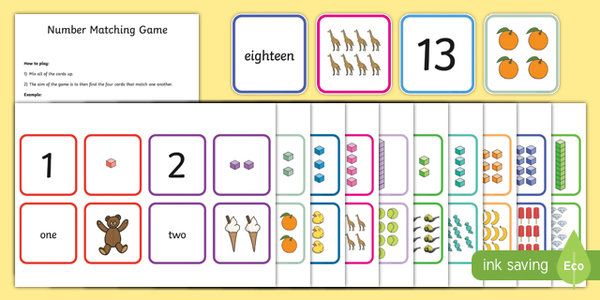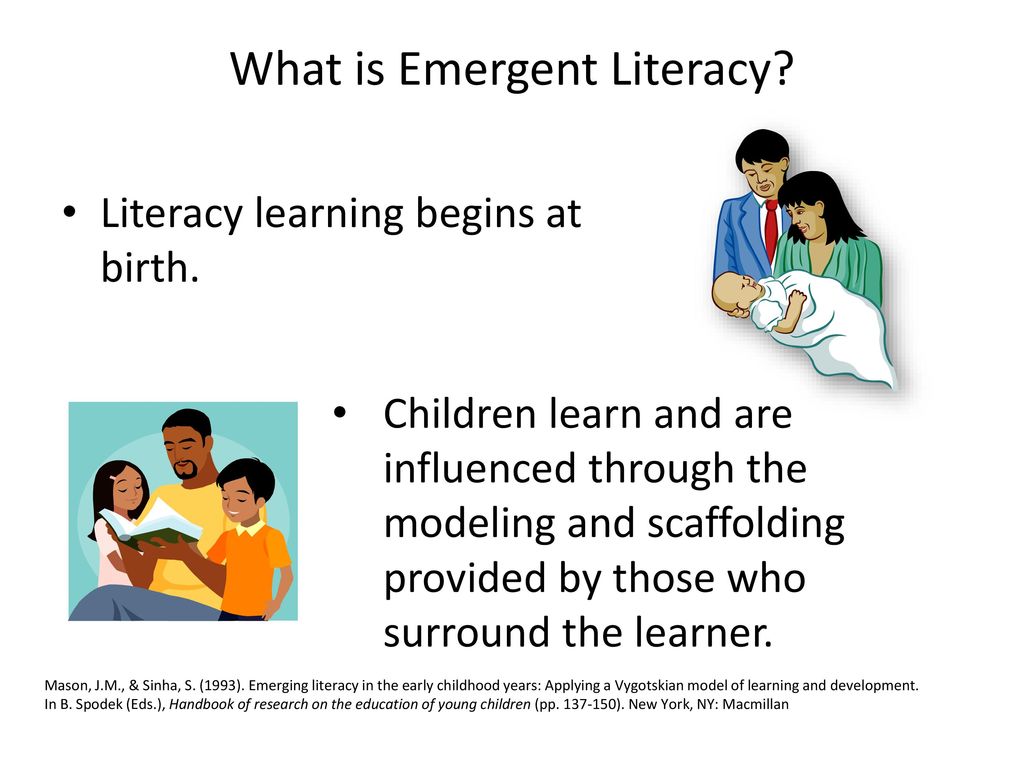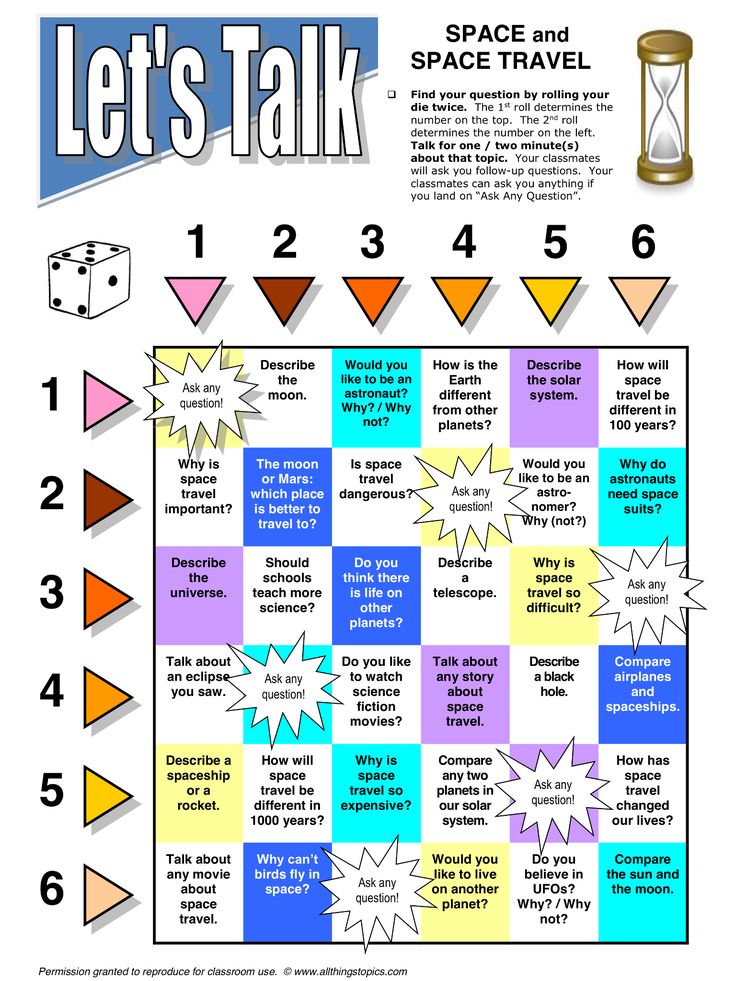Rhyming spelling words
Rhyming Words for Kids (Complete List)
Many of us have fond memories of learning nursery rhymes and rhyming stories when we were children.
These tales are important because they expose children to rhyme, which is essential for language development. Children who have strong early language abilities, including listening and speaking, are shown to develop more robust reading and writing skills.
Helping your child recognize and use rhyme will help them first with their verbal language and then with their literacy. Introducing rhyming words for kids is an excellent way to do that.
Key Takeaways
- Rhyming helps children develop language and literacy skills.
- Children learn rhyming in three stages: exposure, recognition, and production.
- Make learning to rhyme fun with books, poems, songs, puzzles, and games.
- Start with simple rhyming words for younger kids and gradually introduce more complex words as they grow older.
Table of Contents
- How Do You Teach Rhyming Words To Children?
- Rhyming Words For Kindergarten
- Rhyming Words For First Grade And Older
- Any Time Can Be Rhyme Time
How Do You Teach Rhyming Words To Children?
Children learn about rhyme in three stages, although there is much overlap as they move from one step to another.
Rhyme Exposure
This is when your child hears rhyming words. This can be in songs while reading rhyming together, or elsewhere. At this stage, you should point out rhyming words to your child.
Rhyme Recognition
Once your child hears a rhyme and points it out, they have reached the stage of rhyme recognition.
Rhyme Production
Finally, your child will be able to produce rhyme themselves. They may take great pride in asking you questions, such as, “Do you know what rhymes with door? More!”
While this may seem like a small thing to you, to them it’s big.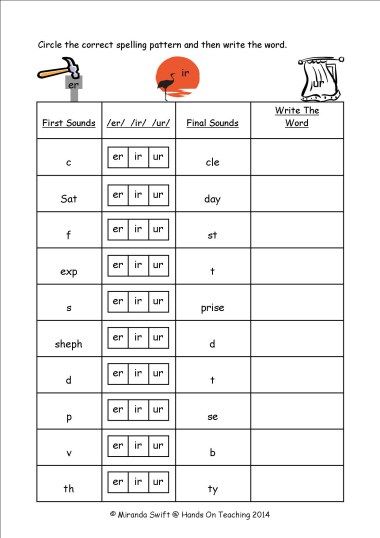 Make sure to show them that you’re impressed with their newly-found knowledge.
Make sure to show them that you’re impressed with their newly-found knowledge.
Ways To Teach Rhyming Words
Make learning to rhyme fun by using some of these methods.
Share Rhyme In Books, Poems, And Songs
Reading rhyming books and poems and singing together will expose your child to rhymes in a fun, relaxing way. Read the complete story or sing the entire song first and then go back and point out the rhymes.
Then, when your child is aware of the concept of rhyming, ask them to point out the pairs of rhyming words they hear or read.
Once your child is familiar with rhymes, read or sing, but don’t say the second rhyming word. Instead, ask your child to provide a suitable rhyme.
Puzzles
Rhyme word puzzles are a fun way for your child to practice pairing up rhyming words.
Clip Cards
Not all rhyming words have the same spelling at the end.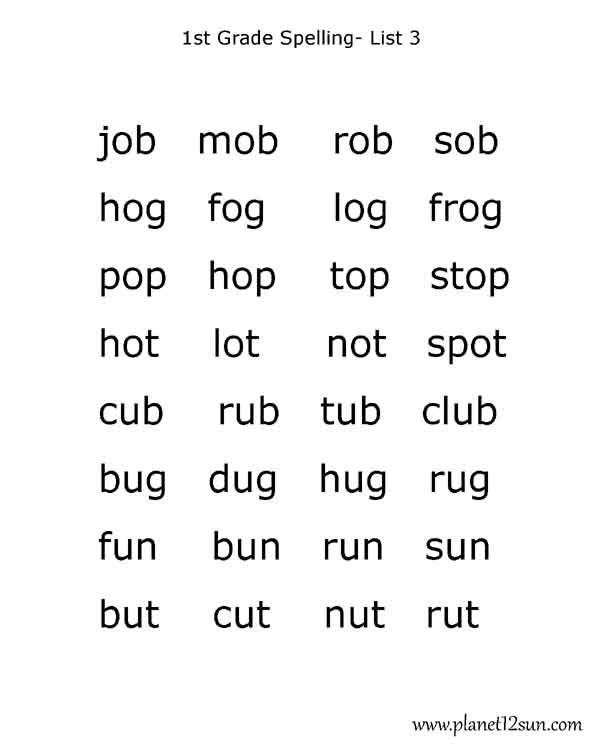 To prevent your child from becoming confused by the spelling, use peg cards where your child picks the correct rhyme according to the picture.
To prevent your child from becoming confused by the spelling, use peg cards where your child picks the correct rhyme according to the picture.
Lap Books
Create nursery rhyme lap-books with your child. First, print out the standard nursery rhyme and then have your child replace the original word with another of their own that rhymes.
Rhyming Dictionaries
Help your child find suitable rhyming words with a rhyming dictionary. These can be immensely helpful no matter what age you are, especially if you are a teacher, writer, or write lyrics for songs.
Rhyming Words For Kindergarten
These are great options for those who are younger than kindergarten or those who are still working on completing that first year in school. These are simple words that won’t be too challenging for this age.
Words That Rhyme With At
- Bat
- Cat
- Fat
- Hat
- Mat
- Pat
- Rat
- Sat
- Vat
- Slat
- Brat
- Flat
- Chat
- Splat
- That
Words That Rhyme With An
- Ban
- Can
- Fan
- Man
- Pan
- Ran
- Tan
- Van
- Flan
- Plan
- Span
- Scan
Words That Rhyme With Ab
- Cab
- Dab
- Drab
- Fab
- Flab
- Grab
- Jab
- Nab
- Lab
- Slab
- Tab
- Crab
Words That Rhyme With Ad
- Add
- Bad
- Clad
- Dad
- Fad
- Had
- Lad
- Mad
- Pad
- Rad
- Sad
Words That Rhyme With All
- Ball
- Call
- Fall
- Hall
- Mall
- Shawl
- Tall
- Wall
- Thrall
- Gall
Words That Rhyme With Ag
- Bag
- Flag
- Drag
- Gag
- Hag
- Nag
- Rag
- Sag
- Tag
- Wag
Words That Rhyme With Ip
- Ship
- Chip
- Clip
- Dip
- Drip
- Flip
- Grip
- Hip
- Kip
- Lip
- Nip
- Pip
- Rip
- Sip
- Slip
- Skip
- Snip
- Tip
- Trip
- Zip
Words That Rhyme With Ap
- App
- Cap
- Clap
- Flap
- Gap
- Lap
- Map
- Nap
- Rap
- Scrap
- Slap
- Snap
- Strap
- Snap
- Tap
- Trap
Words That Rhyme With Id
- Bid
- Did
- Hid
- Kid
- Lid
- Mid
- Rid
- Sid
- Grid
- Slid
- Skid
- Squid
Words That Rhyme With Op
- Bop
- Cop
- Crop
- Clop
- Drop
- Flop
- Hop
- Mop
- Plop
- Prop
- Shop
- Stop
- Swap
- Top
Words That Rhyme With Am
- Clam
- Cram
- Dam
- Gram
- Ham
- Jam
- Lamb
- Ram
- Slam
- Spam
- Tram
Words That Rhyme With Ig
- Big
- Dig
- Fig
- Gig
- Pig
- Rig
- Twig
- Swig
- Wig
- Brig
Words That Rhyme With Ar
- Are
- Bar
- Car
- Far
- Jar
- Scar
- Star
- Tar
- Ajar
- Guitar
Words That Rhyme With Aw
- Awe
- Caw
- Claw
- Draw
- Flaw
- Paw
- Raw
- Saw
- Straw
- Thaw
Words That Rhyme With Ay
- Bay
- Clay
- Day
- Gray
- Hay
- Jay
- Lay
- May
- Pay
- Play
- Pray
- Say
- Stay
- Spray
- Sway
- They
- Way
- Tray
Words That Rhyme With Ell
- Bell
- Cell
- Dell
- Fell
- Gel
- Sell
- Shell
- Smell
- Spell
- Tell
- Well
- Yell
Words That Rhyme With En
- Den
- Men
- Pen
- Ten
- Then
- When
- Wren
- Zen
- Ben
- Ken
Words That Rhyme With Et
- Bet
- Get
- Jet
- Let
- Met
- Net
- Pet
- Set
- Wet
- Yet
Words That Rhyme With Ew
- Blue
- Blew
- Brew
- Chew
- Clue
- Crew
- Cue
- Do
- Dew
- Drew
- Ewe
- Flew
- Glue
- Grew
- Knew
- New
- Phew
- Shoe
- Shoo
- Stew
- Through
- Threw
- True
- Two
- View
- You
- Who
- Zoo
Words That Rhyme With In
- Bin
- Chin
- Din
- Fin
- Grin
- Inn
- Pin
- Shin
- Skin
- Spin
- Twin
- Thin
- Tin
- Win
Words That Rhyme With It
- Bit
- Fit
- Hit
- Kit
- Knit
- Lit
- Mit
- Nit
- Pit
- Sit
- Quit
- Skit
- Slit
- Spit
Words That Rhyme With Od
- Cod
- Bod
- Odd
- Nod
- Plod
- Prod
- Rod
- Squad
- Trod
- Pod
Words That Rhyme With Og
- Bog
- Blog
- Cog
- Clog
- Dog
- Fog
- Frog
- Hog
- Jog
- Log
Words That Rhyme With Op
- Top
- Chop
- Cop
- Crop
- Drop
- Flop
- Hop
- Mop
- Pop
- Shop
- Stop
Words That Rhyme With Ot
- Blot
- Cot
- Clot
- Dot
- Got
- Hot
- Knot
- Not
- Plot
- Pot
- Rot
- Shot
- Spot
Words That Rhyme With Ow
- Bow
- Brow
- Cow
- How
- Now
- Pow
- Sow
- Row
- Vow
- Wow
Rhyming Words For First Grade And Older
These are useful rhyming words for first graders and above with an expanding skillset.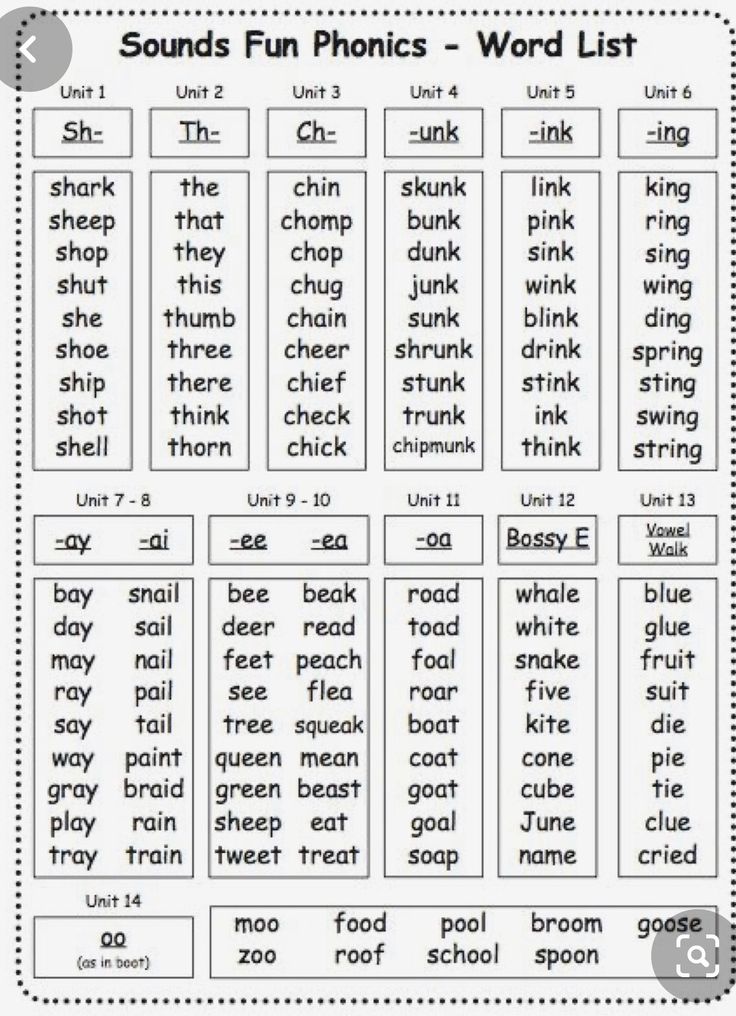
Words That Rhyme With Ake
- Ache
- Bake
- Cake
- Brake
- Break
- Fake
- Flake
- Lake
- Make
- Quake
- Rake
- Sake
- Take
- Sneak
- Steak
- Stake
- Wake
Words That Rhyme With Ale
- Bail
- Bale
- Kale
- Dale
- Fail
- Hail
- Male
- Nail
- Pail
- Pale
- Rail
- Sail
- Snail
- Sale
- Stale
- Tail
- Tale
- Trail
- Whale
- Detail
- Toenail
Words That Rhyme With Ain
- Brain
- Cane
- Chain
- Crane
- Drain
- Gain
- Grain
- Lane
- Mane
- Main
- Pane
- Pain
- Plain
- Plane
- Reign
- Rain
- Sprain
- Stain
- Strain
- Train
- Again
Words That Rhyme With Or
- Door
- Chore
- Core
- Four
- For
- Sore
- Floor
- Door
- More
- Oar
- Snore
- Soar
- Store
- Score
Words That Rhyme With School
- Cool
- Cruel
- Drool
- Fool
- Fuel
- Ghoul
- Jewel
- Mule
- Pool
- Spool
- Tool
- Who’ll
- You’ll
- Yule
Any Time Can Be Rhyme Time
Whether you are playing rhyme I-spy, singing nursery rhymes, or reading a book of children’s poems, the time you spend sharing rhymes with your child is helping them develop spoken language.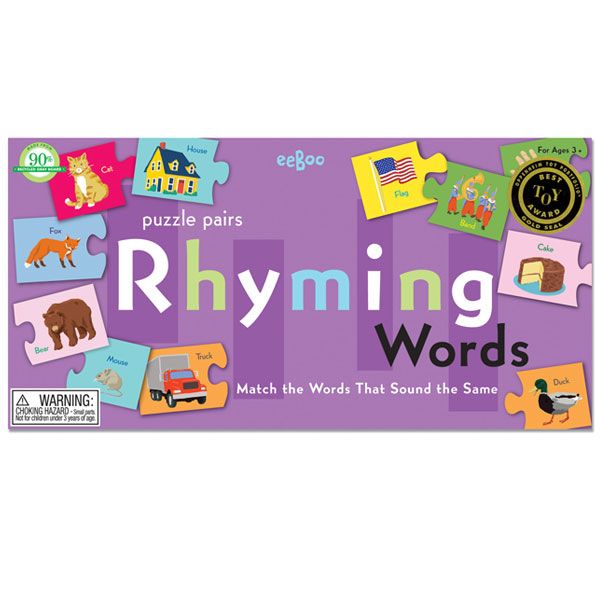
Build a little rhyme time into every day and give your child an advantage.
Introducing rhyming words is an excellent way to lay a solid foundation for literacy.
Feedback: Was This Article Helpful?
Thank You For Your Feedback!
Thank You For Your Feedback!
What Did You Like?
What Went Wrong?
Fun activities using Rhyming Words list for k12
When it comes to rhyming words, most people will recall their kindergarten experience. It is reasonable since rhyming words are mostly taught and used in nursery and other preschool educational contexts. If you plan to introduce words to children, this is rhyming words list that is worth trying. There are also several explanations and enjoyable activities to do with rhyming words below.
Table of Contents
1
What are rhyming words?
Before coming directly to the rhyming words list, it will be better to know what rhyming words are.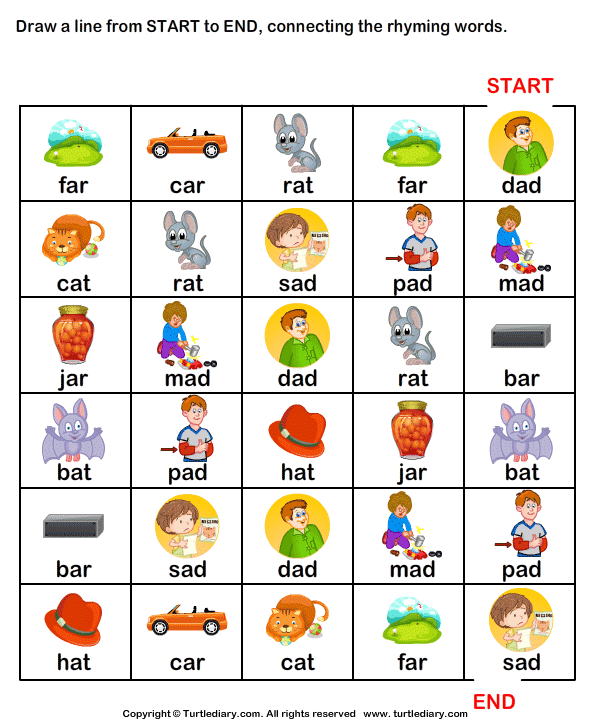 In a simple definition, they are words that have a similar sound or at least the ending sound. When you say them, it sounds like a similar sound repetition. The spelling is also similar yet not wholly.
In a simple definition, they are words that have a similar sound or at least the ending sound. When you say them, it sounds like a similar sound repetition. The spelling is also similar yet not wholly.
The rhyming word list
There are thousands of rhyming words, and they are usually grouped based on the similar sound they have. Furthermore, they can also be grouped into their associated meanings such as foods, animals, sports, body parts, and many more. These are the examples
Rhyming words
| All–Ball–Call | Lip–Hip–Sip |
| Bear–Bare–Beer | Map–Sap–Lap |
| Chickpeas–Cheese–Sneeze | Nine–Wine-Fine |
| Days–Daze–Haze | Owl–Foul–Towel |
| Email–Detail–Trail | Pet–Met–Net |
| Flee–Flea | Read– Red–Bed |
| Goose–Moose–Snooze | Shin–Chin–Pin |
| Happy–Nappy–Puppy | Three–Tree–Tee |
| Jay–Ray–Hay | Very–Vary |
| Kick–Pick–Lick | Wit–Hit–Sit |
Print Table
Ending in ‘at’
| Bat |
| Cat |
| Flat |
| Hat |
| Mat |
| Pat |
| Rat |
| Sat |
| That |
| Vat |
Rhyming words of Love
Above-Cove-Dove-Glove-Hove-Of
Rhyming words in foods category
Crème brûlée-curds and whey-fish fillet-Milky Way-parfait-pâté-puree-sorbet-souffle
Musical instrument category
Microphone-Baritone-Saxophone-Tone-Trombone-Xylophone
Rhyming numbers and letters
1-21-31-41-51-61-71-81-91-101
13-14-15-16-17-18-19
Million-Billion-Trillion-Zillion
A-J-K
B-C-D-E-G-P-T-V-Z
Fun activities to teach rhyming words to children
After seeing the rhyming words listed above, you can make rhyming groups based on various categories.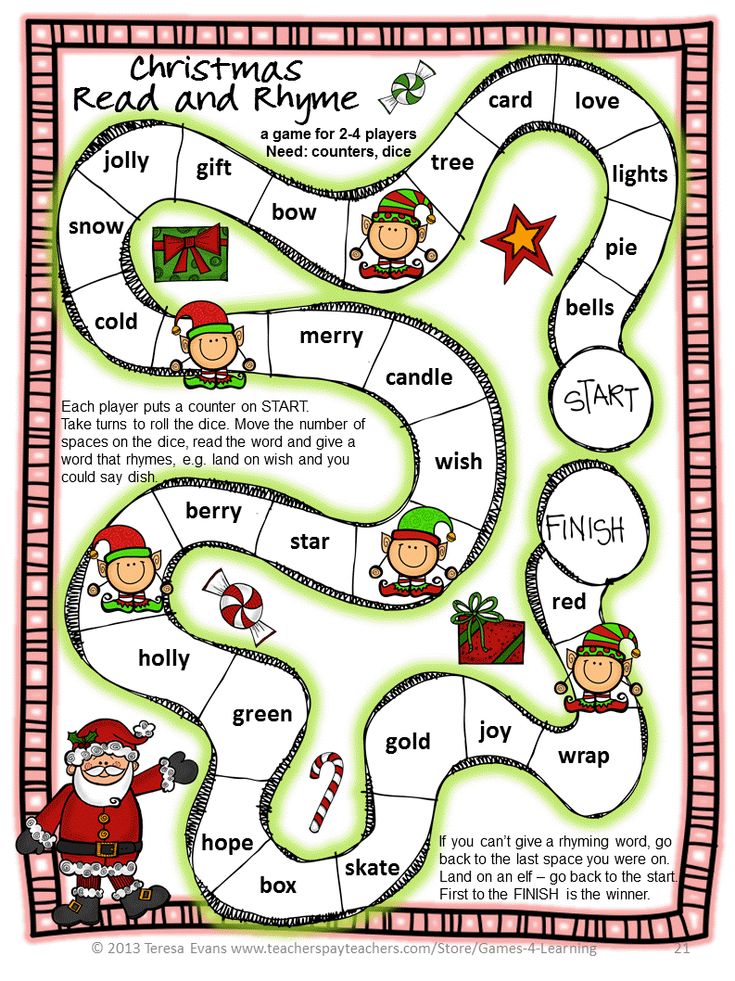 The similarity (in terms of meanings or sounds) helps children to remember and understand the words. At first, they might not still be aware of the rhyme, so they need to be introduced based on the 4 stages of rhyming. The stages include identifying rhyme, matching rhyming words, finding the oddity, and producing rhyme.
The similarity (in terms of meanings or sounds) helps children to remember and understand the words. At first, they might not still be aware of the rhyme, so they need to be introduced based on the 4 stages of rhyming. The stages include identifying rhyme, matching rhyming words, finding the oddity, and producing rhyme.
You can organize several activities in sequence to the stages. As a reference, here are several fun rhyming activities that children will enjoy:
- Singing rhyming words: As an introduction you can use random words that rhyme together, later you can involve some categories.
- Rhyming hide and seek: using pictures or flashcards that are hidden in various spots in the room, ask children to find the cards that rhyme with the cards that they are given.
- Rhyming splat: give a fly swat to children and place some rhyming word cards with one that doesn’t rhyme. Ask the children to splat the odd one.
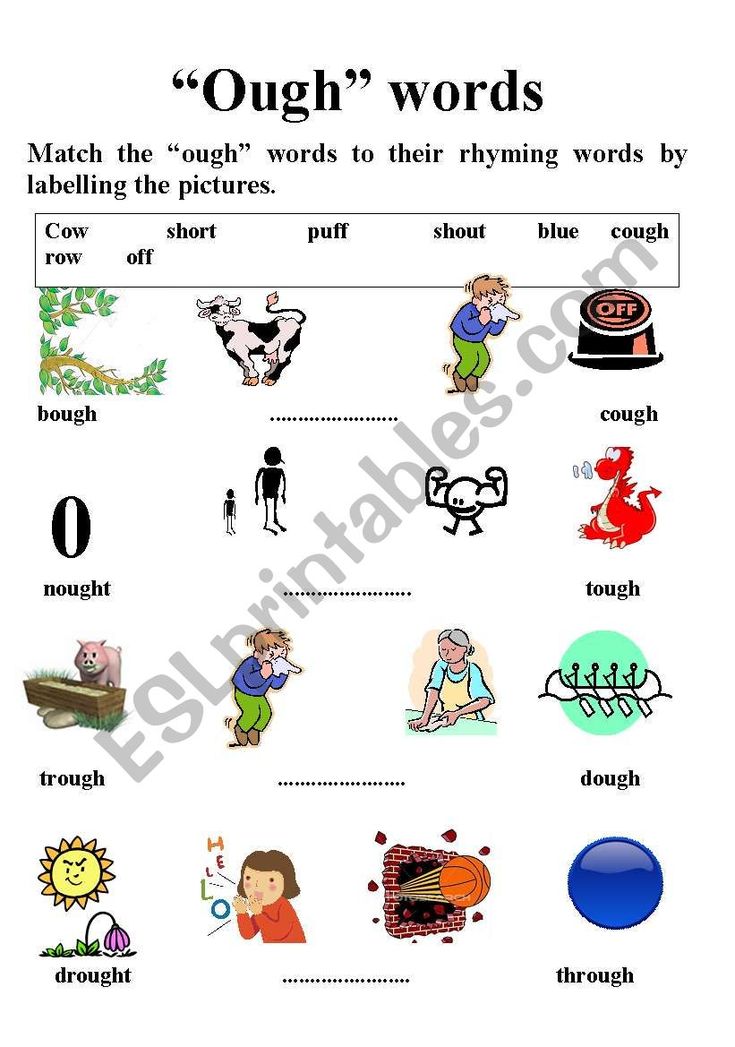 This will be more fun if held in a competition.
This will be more fun if held in a competition. - Rhyming word trains: create a series of rhyming words together with children. You can do it by writing or singing.
Conclusion
This type of learning enhances children’s language development, especially their listening and speaking skills. Start by using common and simple from the rhyming words list as children need time to process the words. Teaching rhyming words through the mentioned stages is recommended. So have fun rhyming with little ones.
Funny memos in the Russian language
We present to your attention funny memos in the Russian language with 15 rules of spelling, orthoepy and grammar.
Literate speech, both oral and written, immediately betrays an educated and well-read person. Everyone dreams of speaking and writing without mistakes! Of course, only the owner of rare encyclopedic knowledge can achieve a 100% result.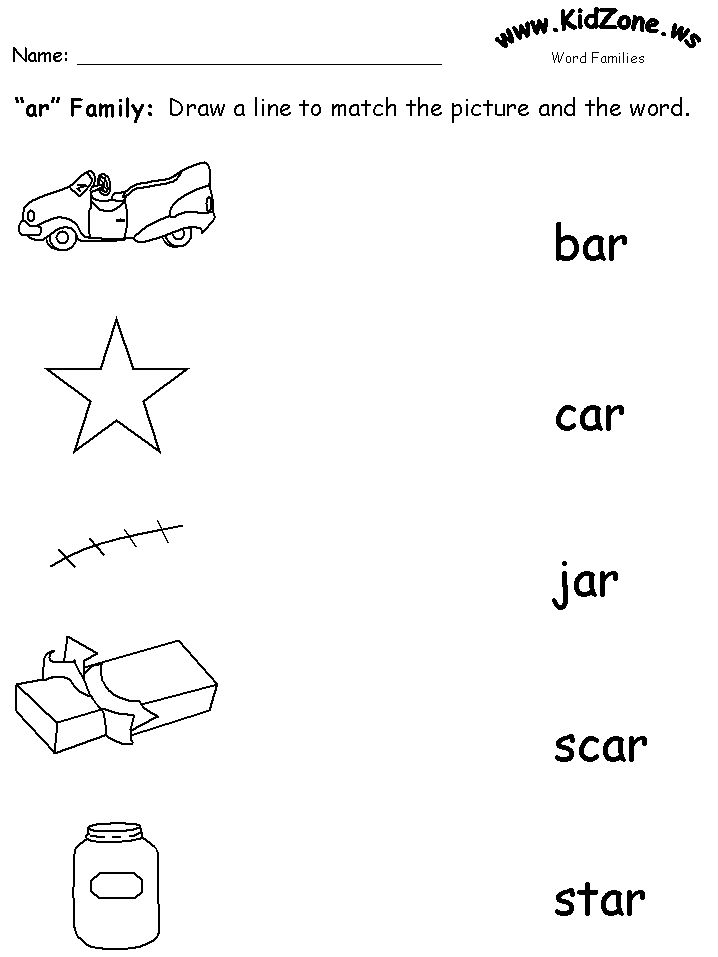 However, making your speech cleaner, not cutting your ear is an easy task: and you should start by avoiding at least the most common mistakes in it.
However, making your speech cleaner, not cutting your ear is an easy task: and you should start by avoiding at least the most common mistakes in it.
In this article, prepared specifically for the Day of the Russian Language, we tried to put together a few "popular" difficult cases, which are often stumbled not only by children, but also by quite serious adults - in television programs, films, and the media. And in order to remember the rules even a kid could do, we decided to put them in a poetic form.
| 1. Particle NOT with verbs is written separately. NOT - the verb is not a friend, (E. Intyakova) | |
| 2. HE and NI particles Oh, how similar NOT and NOR! | |
| 3. -TSYA/-TSYA in verbs In a winter evening, starry, quiet (E. Intyakova) | |
| 4. The stress in the personal forms of the verb “call” falls on the sound I. My Dunno Neighbor Moans, (I. Ageeva) | |
| 5. Put on (what?) clothes; dress (whom?) Nadezhda Nadia girl WEAR I began to dress the doll, (E. Intyakova) | |
| 6. Come - I will come - I can't come to you (E. Intyakova) | |
| 7. The verb "to go" in the imperative mood Green light, | |
| 8. The verb “put” is used without prefixes, and “(on) lay down” - only with prefixes. No food, no lie, (E. Intyakova) | |
| 9. “How will I go to the competition, how will I run all of them! (E. Intyakova) | |
|
To read this to me The same as Masha, I'll write in my notebook, Also I will go to the market, (E. Intyakova) | |
| 11. Half words (half a room, half a world, half a watermelon, half a lemon, half a Moscow) Now it has become clear to us, Before "L" and before a vowel, (I. Aseeva) | |
| 12. Plural genitive of nouns "socks", "stockings", "boots", "shoes" "Stockings" and "socks" follow a simple rule: the shorter, the longer. Short socks - long word: socks (6 letters) And about “shoes” and “boots”, we invite you to remember a funny quatrain: One pair of fashion shoes (E. Intyakova) At the same time, you can learn the spelling of the single letter H in the word “leather” (the same is true for other adjectives with the AN/YAN suffix). Exceptions are easy to remember by looking at the usual window : wood, glass, tin. | |
| 13. O or Yo? In the stressed suffixes of nouns -ONK-, -ONOK- (girl, skirt, galchonok, teddy bear) the letter O is written. A bear cub was walking through the forest, (E. Intyakova) | |
| 14. Cakes - Shorts: the stress in all forms of both words falls on the first syllable. They ate cakes for a long time - | |
| 15. Spelling of unpronounceable consonants Both terrible and dangerous |
We give you memorabilia
Absolutely FREE!
Happy Russian Language Day!
Dear readers, perhaps you know other good memos? Did you compose them yourself or remember them from childhood? We will be very grateful if you share your knowledge with us and supplement this article with new interesting material.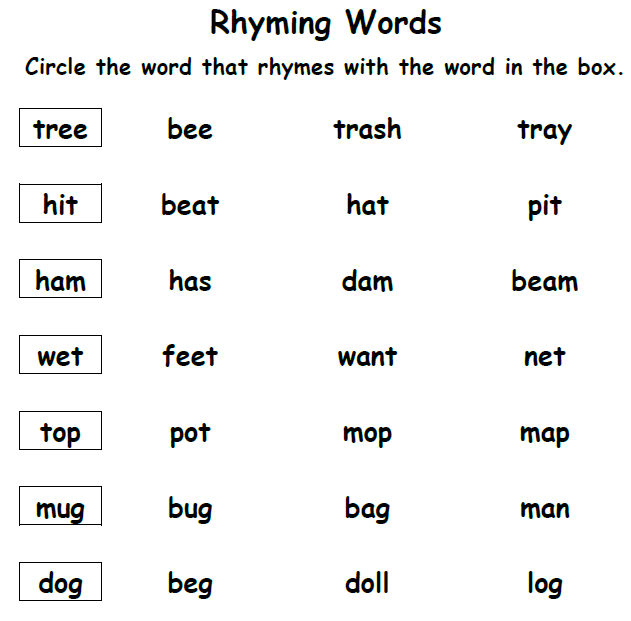 Letters can be sent to our editorial office.
Letters can be sent to our editorial office.
Svetlana Tsyplakova
Especially for https://inteltoys.ru
To the list of articles
Rhyming verses for learning spelling | Russian language simulator (Grade 3) on the topic:
Rhyming verses for learning spelling
Combinations ZhI, SHI
Vest, animal, belly,
giraffes, painting, lives,
wild rose, tires, reeds,
cars and pencils,circle, serve, make friends and live,
hurry, mix, hiss and sew -
all combinations of zhi and shi
just write with a letter!
Combinations of cha, scha
Combinations of cha and scha
in the word food and candle write.
Combinations Chu, Schu
I want to write correctly,
Words in chu and shu I teach:
Stockings and a miracle, and cast iron,
An oddball and a pike and a grumbler
Combinations of the Cheka, CH
Who reads
faster and remembers:
Christmas tree and squirrel,
cloud, pike, arrow,
barrel, kidney, match,
river, pen, bird,
2222222222222222222222222222222222222222222222222 joke, minute,
daughter, joke,
candle, stove, line,
bun and dot.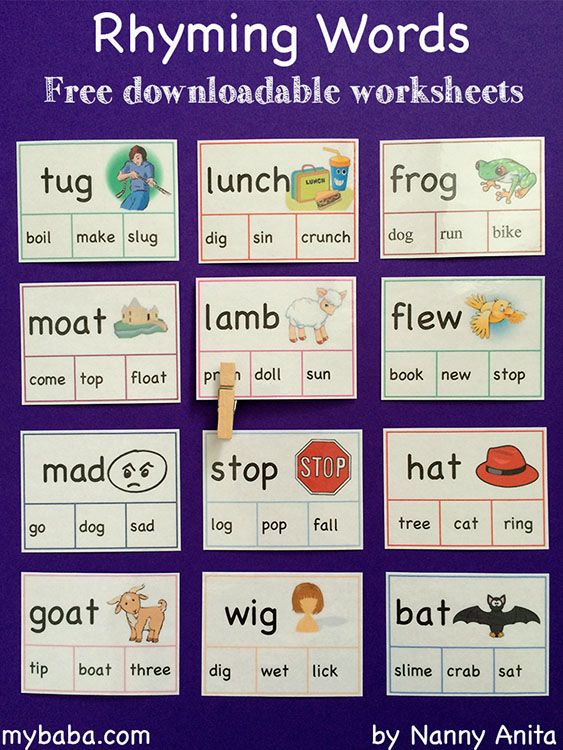
Word root
Just like bushes,
words have the root of a word.
Be attentive to the words,
find the root in them yourself:
Color, flower, color, flower bed.
Pilot, plane, flight.
Ice, ice, ice.
Garden, planting, planted.
Genus, parents, gave birth.
Walks, trick, moves.
Labor, labor, labor.
Spelling of unstressed vowels in root
An unstressed vowel
causes a lot of pain.
How to write g..ra, tr..va and the words m..rya, d..la?
To avoid any doubt,
put the sound under stress:
mountains, grass, sea, business!
Now let's write boldly!
Spelling of paired deaf and voiced consonants in the root
Paired consonants -
the most dangerous!
At the root, you check them -
substitute a vowel next to them!
Double consonants in the root
With a double consonant we will certainly write the words
: antenna,
kilogram and gram, and ton,
passenger, highway, column,
quarrel, tennis and program,
group, cash desk, telegram,
Russian, class, Saturday, bath,
Rimma, Emma, Inna, Anna.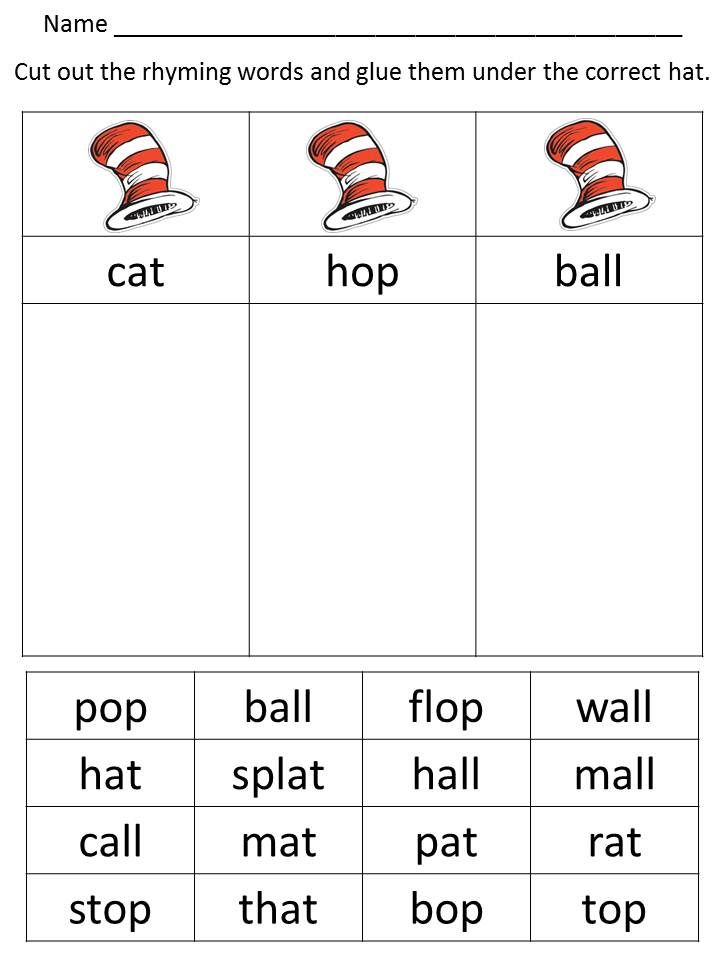
Unpronounceable consonants in the root of the word
But this is just hide and seek.
Sound either there or not. Puzzles.
Choose such a word,
For the sound to appear again,
Not lost anywhere,
But would have remained in place.
So..nce shines, in the middle - a holiday..nick…
Well, where are you, sound-prankster?
Use of a firm sign
I am not a joke to you, not a trifle.
I am a very, very hard sign.
I ask you to know clearly, firmly,
Where and when to write to me.
After the prefix, my place,
E, Yu, Ya, Yo follow.
Spelling of vowels after hissing and C in noun suffixes and endings
With a white roof..and porches..m
The house seems like a palace to us..m.
And now, my friend, attention:
In suffixes and endings
On the edge of the word, at the very end
After the hissing and after the C
O is written under stress,
E - unstressed, only everything.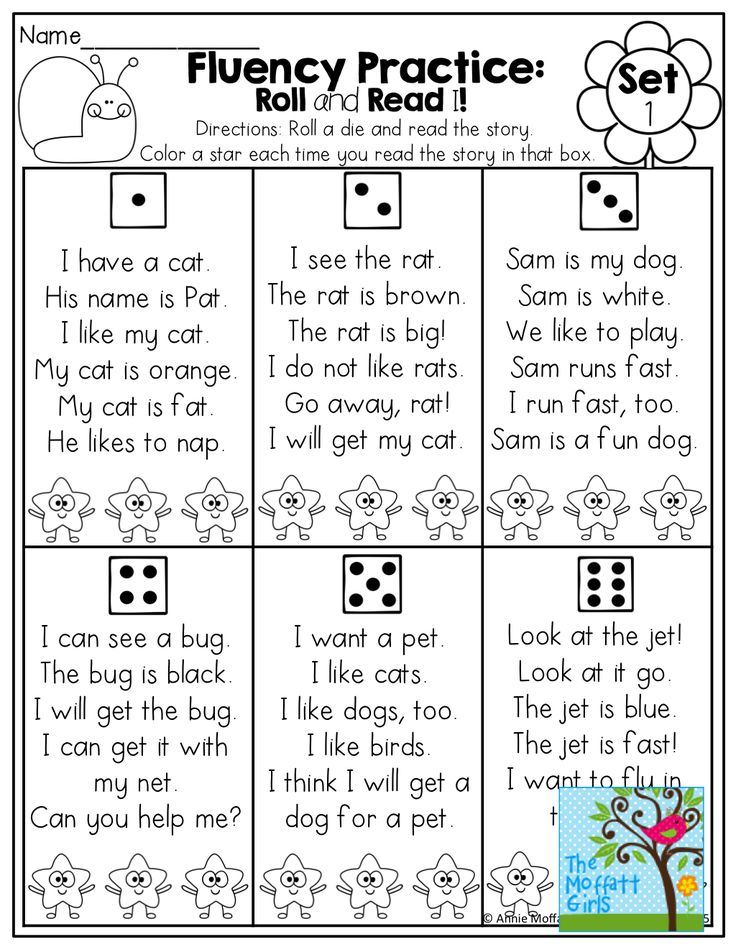
Spelling of vowels O - E after the hissing word 9 at the root0005
Here's a cheerful, invigorating piece of advice:
At the root of a word after a hissing
What do you hear under stress?
It is heard O. It is written Y.
EXCEPTIONS: RUSHING in the gooseberry, on the HOOD SEAM
What determines the spelling of the vowel in the roots with alternation.
The suffix -A-.-KOS- (-KAS-) commands
They came to the lesson in our class
The root -KOS- and the root -KAS-.
Suffix -A- rushed in instantly,
Stunned everyone with a loud cry:
- Where are you, where are you, root -CAS-?
I can't live without you!
If after the root -A-,
With the root -CAS- write the words.
-LAH- (-FALSE-)
Suppose the root is FALSE-
Went out in the rain without galoshes.
Caught a cold, that's clear.
Terrible condition.
They put him on the bed,
How hard it is for him now.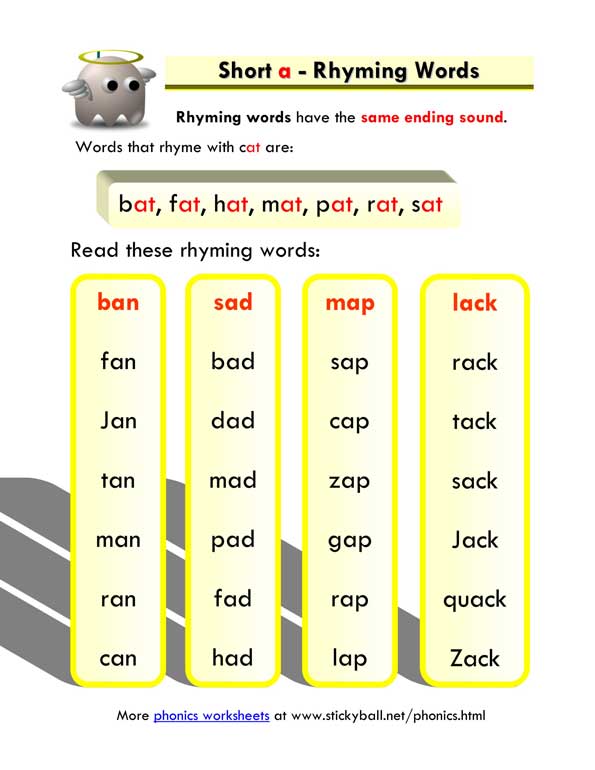
Offered ointment, injections,
Skips the poor school.
But the smart root -LAG-
Suffix -A-, like a flag,
Unfolded behind him
And never sneezed.
I guess it's clear, children,
How do you write these roots?
Commanding consonant sounds -RAST- (-RASH-), -ROS-
Here's the problem, here's the question:
How do I write -RAST- and -ROS-?
I am much more likely to draw a conclusion:
At the root -РАСЧ- and at the root -РАСТ-
The letter A, and at the root -ROS-
The letter O, and the question is removed.
EXCEPTIONS:
Rostislav lives in Rostov.
Who is he, who is he? Moneylender.
And a sprout in a new pot
I'm used to exceptions.
“Branch” - twig, shoot,
Obsolete in the new century.
The stress is commanded by
tanning, but tanned,
, butug the
,, put an emphasis of
and you should be able to
without fear and doubt
Fate,
, following the pancake,
-gard - to distinguish from -GOR-.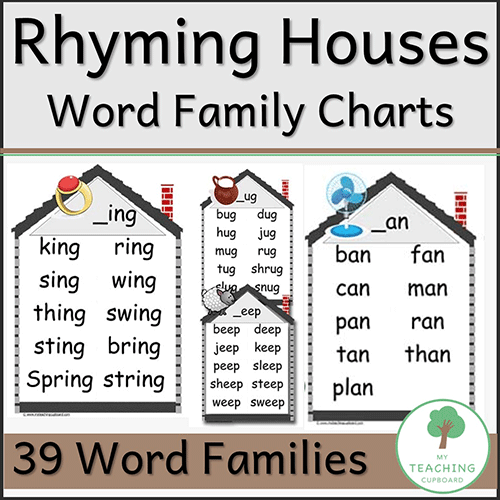
without stress under stress
exceptions:
-gor--utlyar- Utvostar
-Klan- Clals
-Zoryanka
-Zar-Zorovtiv
-Plaw - - PLOV- - SWIMMER
Alternating vowels in the root of the word
Opening a new leaf,
Here are the roots - BLEST- and - BLIST -.
It will be even cooler,
There are a lot of roots with E and I.
They will scatter in an instant:
This one -ZHEG -, and this one -ZHIG -.
Oh, shame! Missed!
-STEEL- and -STEEL- ran away.
Let's put them in order,
We'll write them all down in a notebook.
They will stand in a column,
We will repeat:
-ber-bir-;
-per-pir-;
-der-dir-;
-ter-tir-;
-mer-peace-;
-steel-steel-;
-shine-shine-;
burn-burn-.
Attention! Attention!
In alternating roots
We write And, looking first,
Is there -A- after the root.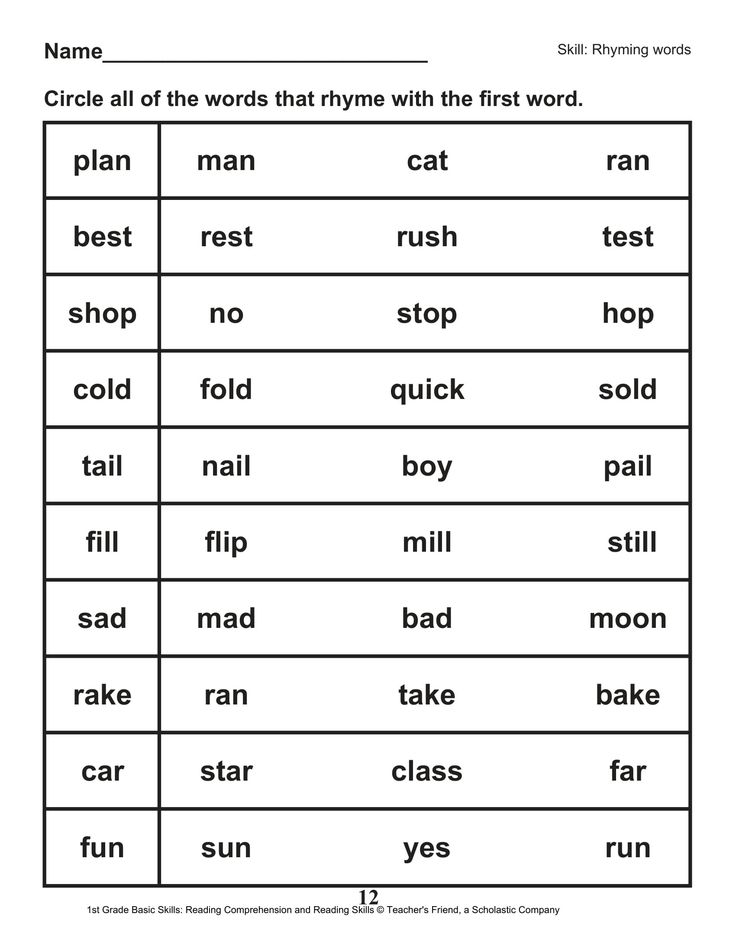
If not, what is your solution?
- We write E without delay.
Commands meaning
-EVEN- (even, straight, smooth: flat road)
-EVEN- (equal: equal in weight)
-MOK- (soak in liquid: boots get wet)
-MAK- (dip into liquid: dip pen into ink)
Learning the parts of speech
Fun grammar
Noun - “school”,
“Wakes up” - verb.
With the adjective "cheerful"
A new school day has come.
We say “excellent”
We cherish the lesson,
We habitually observe
Discipline and regime.
After school, as you know,
We go sleigh rides.
This is especially appropriate
Interjections "oh" yes "ah"!
“We” stood up - pronoun
The numeral “seven” beats
For learning, no doubt,
Everyone needs to be accepted.
"Neither" and "not" - we have particles,
We need to repeat them
And at the same time not to be lazy
And not to waste an hour!
And then
At the warm stove
We repeat
Parts of speech!
Proper nouns
NAMES: Andrei, Ivan,
uncle Kolya, grandfather Stepan,
Nina, Vera, Valentina,
Margarita and Marina.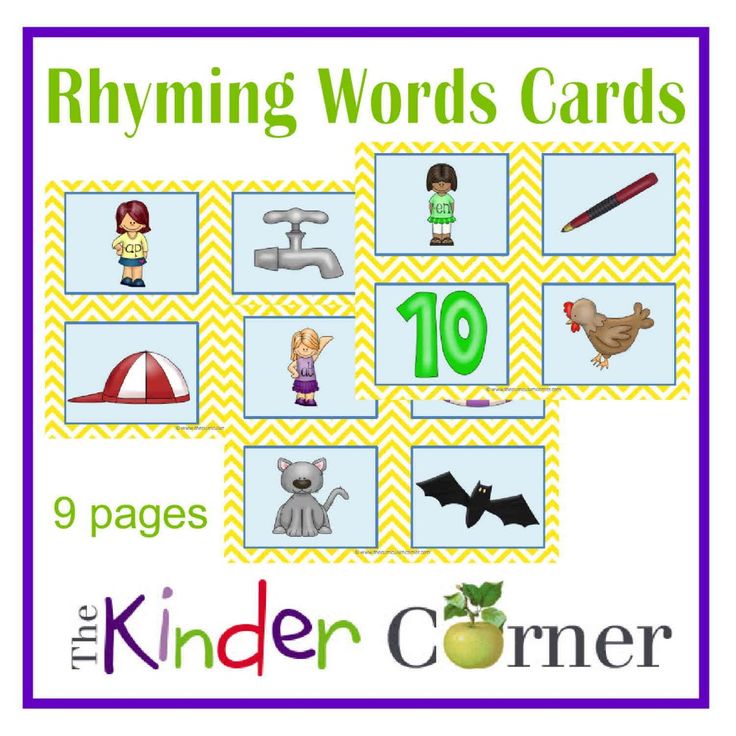

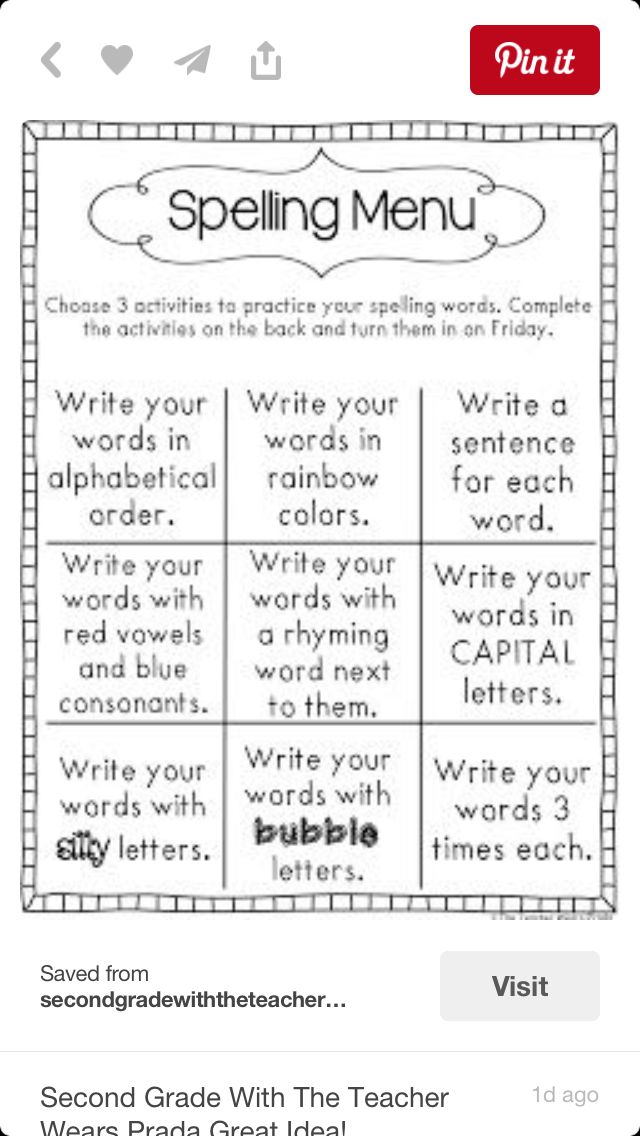
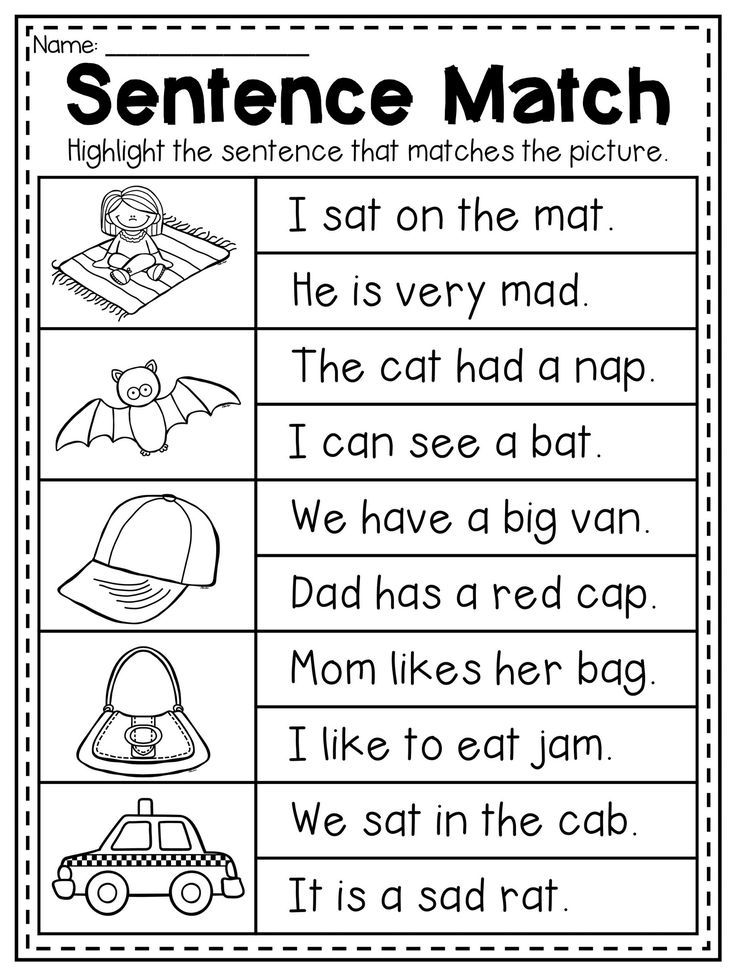
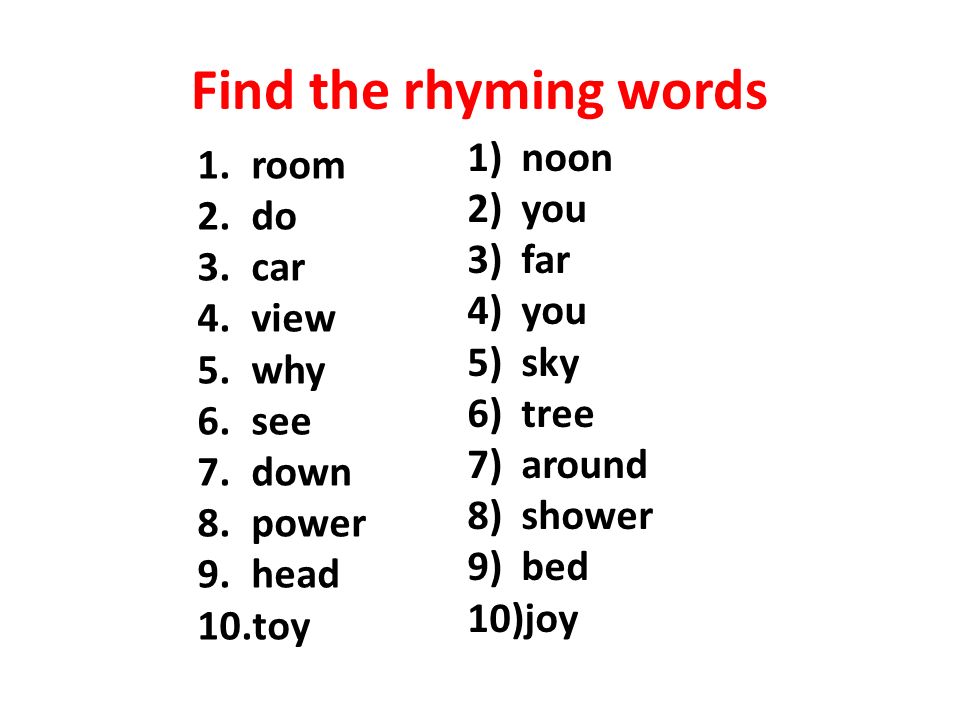 Will I win or will I run? The verb "to win" in the future tense has only a complex form (to win, to become a winner).
Will I win or will I run? The verb "to win" in the future tense has only a complex form (to win, to become a winner). 